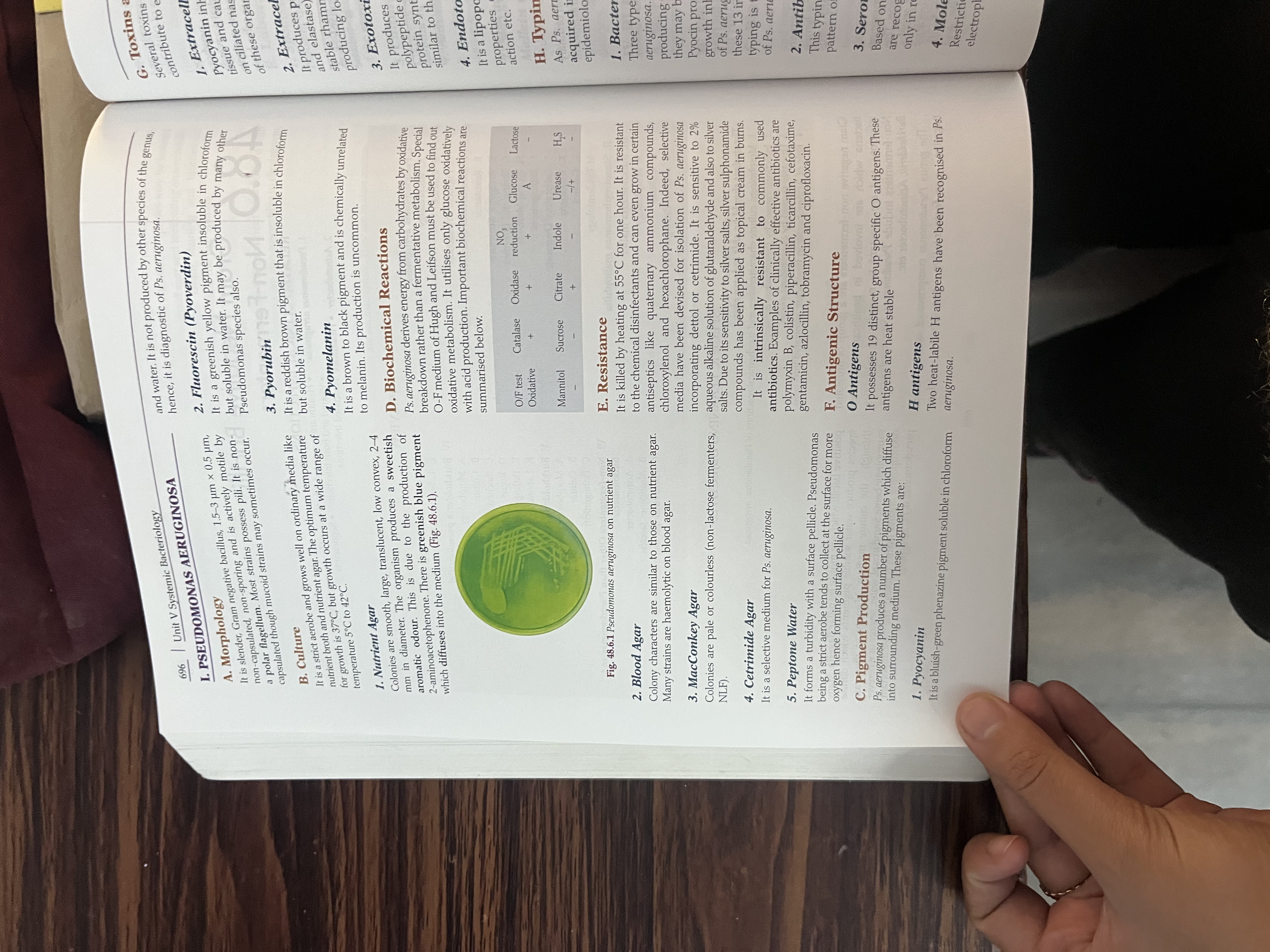What are the characteristics and culture requirements of Pseudomonas aeruginosa?

Understand the Problem
The question seems to be asking for information regarding the characteristics, culture conditions, or biochemical reactions associated with Pseudomonas aeruginosa. This may involve understanding different agar types or nutrient requirements for its culturing, reflecting a microbiological context.
Answer
Gram-negative, motile, aerobic rods that thrive at 37°C, produce pyocyanin, and are antibiotic-resistant.
Pseudomonas aeruginosa are gram-negative, motile, nonfermenting, aerobic rods. They grow well on ordinary media, preferring 37°C. They produce pigments like pyocyanin and pyoverdin. They are resistant to many antibiotics and utilize glucose oxidatively.
Answer for screen readers
Pseudomonas aeruginosa are gram-negative, motile, nonfermenting, aerobic rods. They grow well on ordinary media, preferring 37°C. They produce pigments like pyocyanin and pyoverdin. They are resistant to many antibiotics and utilize glucose oxidatively.
More Information
Pseudomonas aeruginosa is notable for its simple nutritional requirements and ability to adapt to various environments. It is an opportunistic pathogen often encountered in hospital settings, particularly affecting immunocompromised individuals.
Tips
Avoid assuming all strains look identical; colony color can vary. Ensure temperature and culture media are optimal.
Sources
- Pseudomonas - Medical Microbiology - NCBI Bookshelf - ncbi.nlm.nih.gov
- Pseudomonas aeruginosa: opportunistic pathogen - PMC - pmc.ncbi.nlm.nih.gov
- Pseudomonas aeruginosa - Wikipedia - en.wikipedia.org
AI-generated content may contain errors. Please verify critical information